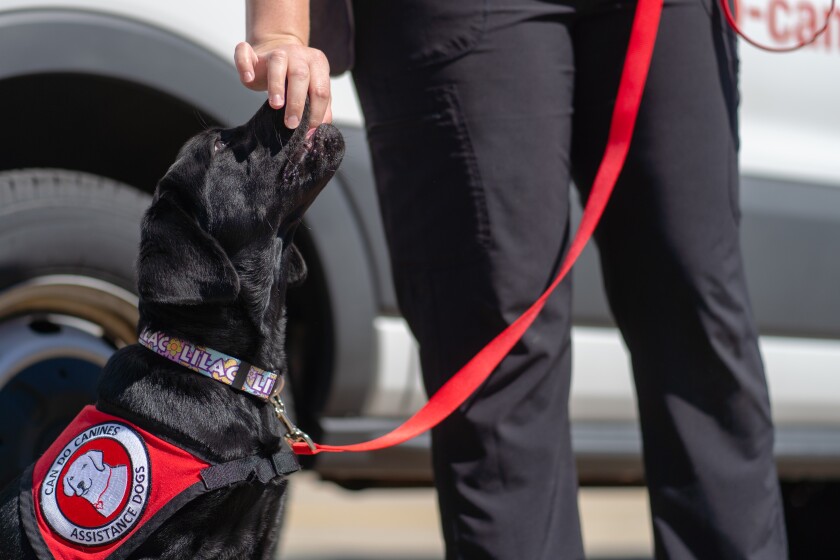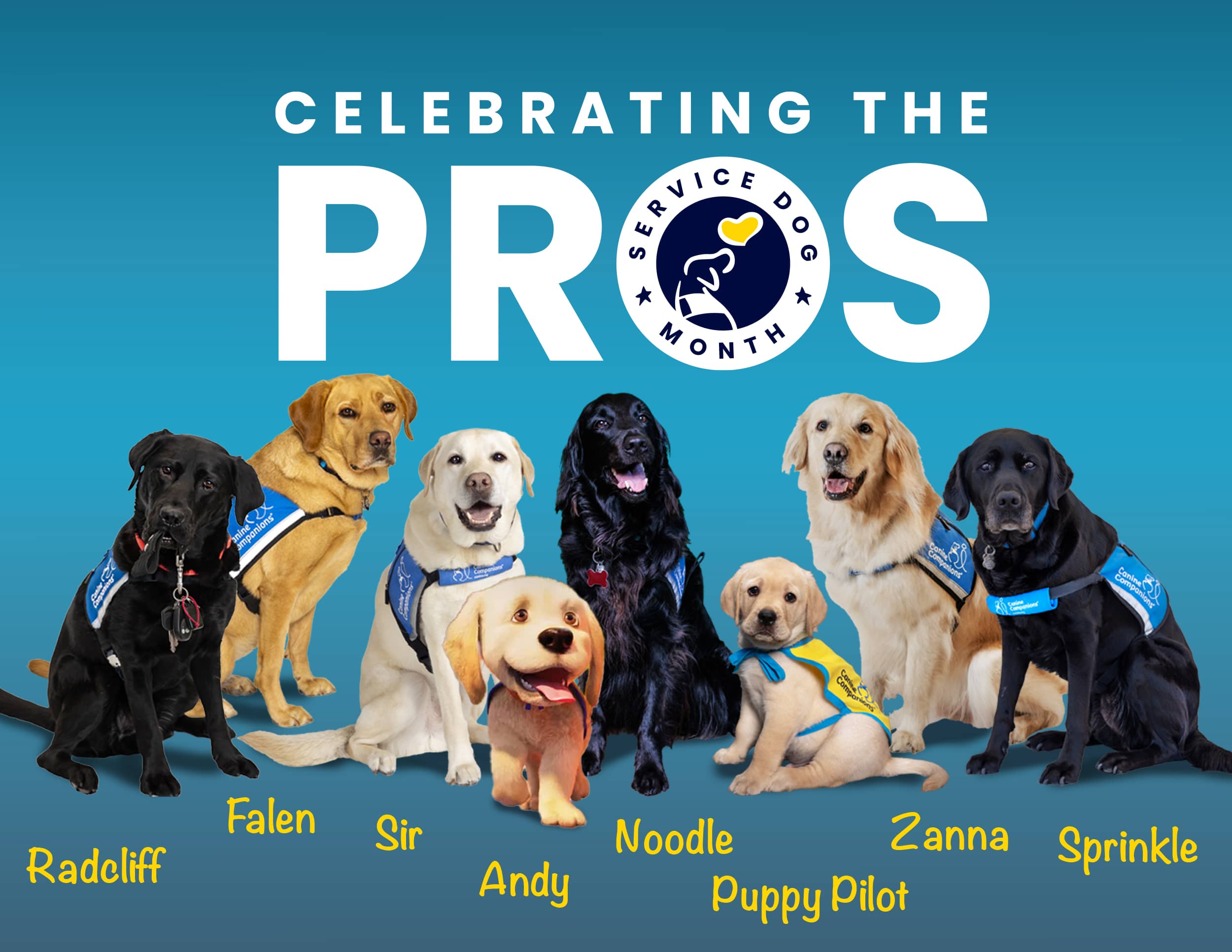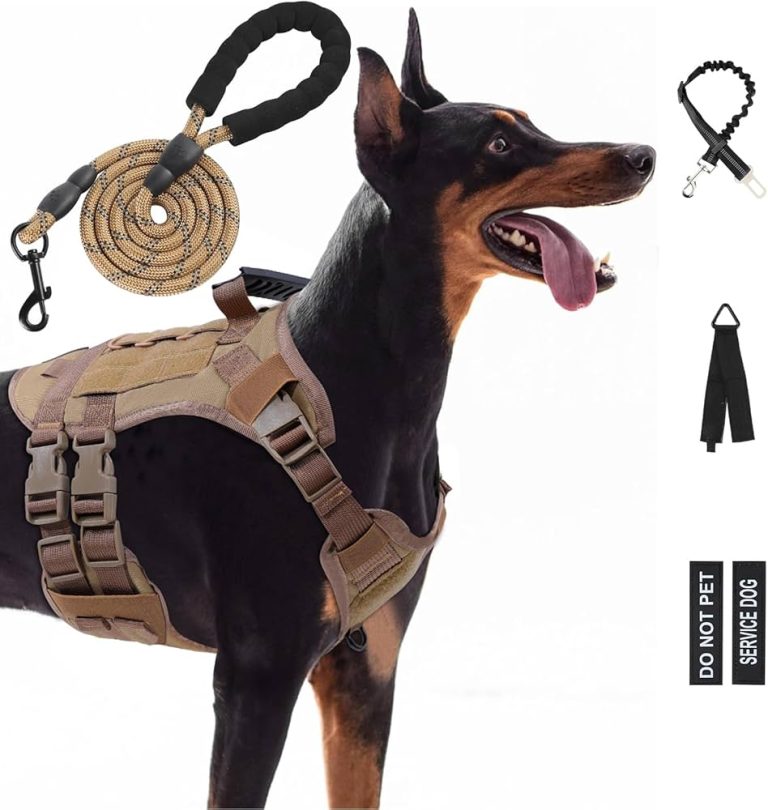When it comes to service dogs, there is often confusion surrounding the need to show proof. The question of “do you have to show proof for a service dog” is a common one that many individuals have. In this blog, we will delve into the requirements and regulations surrounding service dogs, shedding light on the necessary documentation and legalities involved.
Having a service dog can provide invaluable support and assistance to individuals with disabilities, but understanding the rules and expectations is crucial. We will explore the importance of proper identification for service dogs, the rights of handlers, and the laws that govern these specially trained animals. By the end of this article, you will have a clearer understanding of the proof needed for a service dog and how to navigate the regulations effectively.
Understanding Service Dogs
Service dogs play a crucial role in assisting individuals with disabilities in their daily lives and have specific rights under the law. These specially trained dogs are not considered pets but rather working animals that provide vital assistance to their handlers.
Legal Requirements for Service Dogs
In the United States, the Americans with Disabilities Act (ADA) sets forth the guidelines for service animals. According to the ADA, service dog owners are not required to provide proof of their dog’s training or certification, and businesses cannot ask about the person’s disability.
Business owners are only allowed to ask two questions related to the service dog: Is the dog a service animal required because of a disability? and What work or task has the dog been trained to perform?
Benefits of Service Dogs
Service dogs provide a wide range of benefits to individuals with disabilities, including assistance with mobility, guiding individuals who are blind or visually impaired, alerting deaf individuals to sounds, and providing emotional support for individuals with psychiatric disabilities.
- Emotional Support: Service dogs offer comfort and emotional support to individuals dealing with mental health issues.
- Independence: Service dogs enable individuals to lead more independent lives by assisting with daily tasks and responsibilities.
- Security: Service dogs can provide a sense of security and safety to their handlers, particularly in medical emergencies.

Legal Definition of a Service Dog
A service dog is defined as a dog that is trained to do work or perform tasks for the benefit of an individual with a disability. These tasks can include guiding people who are blind, alerting individuals who are deaf, pulling a wheelchair, alerting and protecting a person who is having a seizure, reminding a person with mental illness to take prescribed medications, or calming a person with Post Traumatic Stress Disorder during an anxiety attack.
Qualifications and Training
Service dogs must be individually trained to perform specific tasks directly related to the person’s disability. The tasks performed by the dog must be necessary for the person with a disability to lead a more independent life. Examples of such tasks include:
- Retrieving items like medicine or a phone in case of emergency.
- Alerting to changes in blood sugar levels for individuals with diabetes.
- Assisting individuals with mobility impairments by pulling their wheelchair.

Regulations and Requirements
When it comes to service dogs, there are specific regulations and requirements that owners need to be aware of. These regulations ensure that service dogs are properly trained, registered, and certified to perform their duties effectively.
Training Standards
Service dogs must undergo rigorous training to assist individuals with disabilities. The training standards cover obedience, socialization, and task-specific training to meet the needs of their handlers.
It is important to emphasize that service dogs should be well-behaved in public spaces to ensure the safety and comfort of those around them.
Certification and Registration
While there is no federal requirement for service dogs to be certified or registered, some states may have their own regulations regarding registration. Owners can voluntarily register their service dogs with organizations to receive identification cards or vests.
- Ensure your service dog is properly identified with a year-labeled vest or tag.
- Carry relevant documentation, such as a doctor’s note, to provide proof of your service dog’s purpose.

Do You Need to Provide Proof?
When it comes to service dogs, the question arises: do you have to show proof for a service dog? The answer may vary based on the regulations in place. In most cases, service dog owners are not required to provide proof of their dog’s status.
Regulations on Proving Service Dog Status
According to the latest data, the Americans with Disabilities Act (ADA) states that businesses are only allowed to ask two specific questions to determine if a dog is a service animal:
- Is the service animal required because of a disability?
- What work or task has the dog been trained to perform?
Documentation and Identification
While proof is not required, some service dog owners choose to carry documentation or identification to avoid any potential issues in public spaces. This may include a service dog vest, ID card, or a letter from a healthcare provider.
Acceptable Forms of Proof
When it comes to proving the legitimacy of a service dog, it’s essential to have the right documentation on hand. While there is no federal requirement for service dogs to wear a vest or carry specific identification, it’s still important to be prepared to provide proof if requested. Here are some acceptable forms of proof:
1. Service Dog ID Cards
Service dog ID cards can be obtained from various organizations and can serve as a visual form of identification for your service dog. These cards typically include the dog’s name, a photo, and information about the handler.
2. Doctor’s Note
A letter from a healthcare professional, such as a doctor or therapist, stating that you require the assistance of a service dog for a disability can also be used as proof. This note should outline the handler’s need for a service dog and the tasks the dog is trained to perform.
3. Training Certificate
While not required by law, having a training certificate for your service dog can help establish its legitimacy. This certificate demonstrates that the dog has undergone specific training to assist with the handler’s disability.
Situations Where Proof Might Be Required
When it comes to service dogs, there are specific situations where proof of the dog’s training and status as a service animal may be required. These situations may vary based on the establishment or entity in question. It’s essential for service dog handlers to be aware of these scenarios to ensure they have the necessary documentation readily available.
Public Places
In public places such as restaurants, malls, and public transportation, individuals accompanied by service dogs may be asked to provide proof that the dog is indeed a trained service animal. This can be in the form of identification cards, certificates, or harnesses indicating the dog’s service status.
Traveling by Air
When traveling by air, airlines may request documentation for the service dog to ensure compliance with air travel regulations. This often includes vaccination records, health certificates, and any specific forms required by the airline. It’s crucial for service dog handlers to check with the airline in advance regarding their proof requirements.
Frequently Asked Questions
-
- What is a service dog?
- A service dog is specially trained to perform tasks for individuals with disabilities. These tasks can include guiding the visually impaired, alerting individuals with hearing impairments to sounds, providing support for individuals with mobility issues, and more.
-
- Do you have to show proof for a service dog?
- In most cases, you are not required to show proof that your dog is a service dog. However, if asked, you may need to provide information about the tasks your dog is trained to perform for you.
-
- Are there specific requirements for a service dog to be recognized?
- The Americans with Disabilities Act (ADA) defines a service dog as a dog that is individually trained to do work or perform tasks for a person with a disability. The dog must be trained to take specific actions when needed to assist the person with their disability.
-
- Can any dog be a service dog?
- While any breed can potentially be a service dog, not all dogs have the temperament or training to perform the tasks required of a service dog. It’s important for a service dog to be well-behaved, focused, and able to perform specific tasks to assist its handler.
-
- What rights do service dog handlers have?
- Service dog handlers have the right to bring their service dog to public places, including restaurants, stores, and other establishments. They are also protected against discrimination based on their disability.
Final Thoughts
When it comes to the question, “Do you have to show proof for a service dog?” the answer is not always straightforward. While there are regulations in place that protect the rights of service dog handlers, there is no national certification or identification requirement for service dogs. However, it is essential to remember that businesses and entities can ask two specific questions to determine if a dog is a service animal. It is crucial for both service dog handlers and businesses to be aware of their rights and responsibilities under the law to ensure a smooth interaction.
In summary, while proof may not be mandated, cooperation and understanding between all parties involved are key to upholding the rights of service dog handlers and the accessibility they need.



